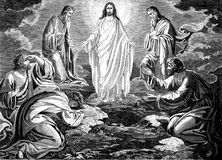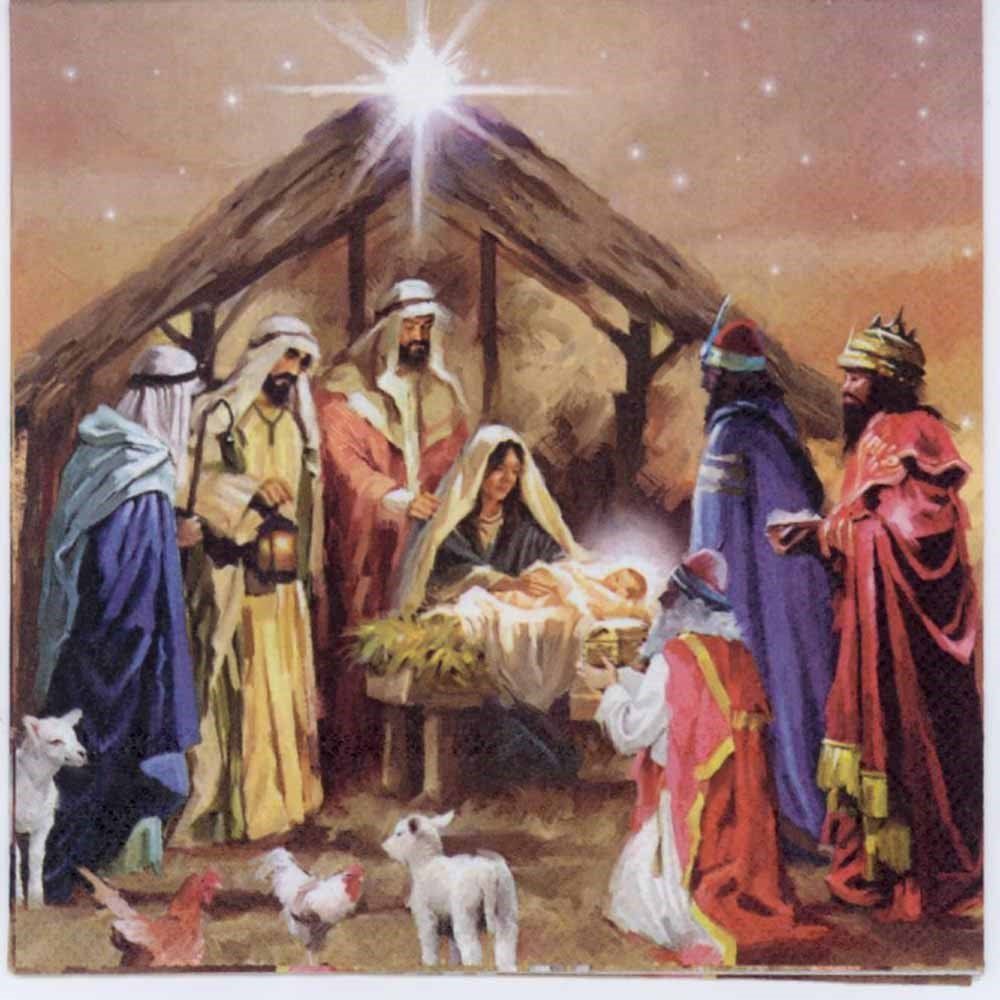Jesus' Transfiguration

Joke: A long line of men stood at one of Heaven's gates, waiting to be admitted. There was a sign over the gate that read, "For men who were dominated by their wives while on earth." The line extended as far as the eye could see. At another one of Heaven's gates, only one man was standing. Over this gate, there was a sign that read, "For men who their wives did not dominate." Saint Peter approached the lone man standing there and asked, "What are you doing here?" The man replied, "I don't know. My wife told me to stand here."
Unlike the man's transfiguration at the gate of Heaven, he didn't want to acknowledge his wife's domination over him. In today's Gospel, acknowledging his divinity and humanity natures, Jesus was transfigured before his chosen disciples, "his clothes became dazzling white … then Elijah appeared to them along with Moses, and they were conversing with Jesus." Peter was overwhelmed with joy and wanted to build three tents, but then the cloud came, casting a shadow over them; from the cloud came a voice, "This is my beloved Son. Listen to him." Why was it revealed Elijah and Moses at the transfiguration of Jesus? Elijah was a great prophet, mighty in deeds in the Old Testament, and Moses was a great prophet who led the Israelites free from slavery. Amid this conversation between Jesus, Elijah, and Moses at Jesus' transfiguration, the cloud came casting a shadow over them, symbolizing the Holy Spirit. The voice from the cloud symbolized God the Father. So, at the Lord Jesus' transfiguration, he revealed the true nature of his divinity and his Son-ship to God the Father.
In the Gospel of last weekend, the first week of Lent, we were reminded Jesus was driven into the desert to be tempted by Satan. In today's Gospel of the second week of Lent, the Church placed this reading from the Gospel of Mark portrayed a scene of the transfiguration of Jesus in front of his chosen apostles to help us strengthen our faith in journeying with the Lord Jesus in these forty days of Lent.
There's an interesting connection between the first reading and today's Gospel. Today's first reading, taken from the book of Genesis, retells the story we are all familiar with. The story of the sacrifice of Abraham's son, Isaac, where the moment just before the sacrifice was to happen, the messenger of the Lord stopped the hand of Abraham and saved his son. However, at the moment of sacrifice of the Son of God, Jesus Christ, at his last breath on the Cross, even he groaned to the Father, "Father, take away this cup from me, not according to my will, but your will," there was no angel appeared to save him from death. Isaac's sacrifice was an innocent sacrifice obedient to his Father Abraham, and Jesus' sacrifice was a total surrender of his will to God the Father. What is it to do with us on our Christian journey, especially during this Lenten season? Have we ever experienced any moment of transfiguration in our lives?
In the story of Abraham's son's sacrifice, Isaac, God promised Abraham that his descendants would be multiplied like the stars in the sky. However, he waited and waited and waited till the age, not young anymore, but still couldn't have a child his wife Sarah was worried about him and told him to have a relationship with her servant Hagar. Abraham then had a son with Hagar named Ishmael, but the Lord was not happy because it was in human's plan, not in God's plan. Abraham had no choice but to wait until he was about a hundred years old to have his first son with Sarah. We might want to ask ourselves, why did God make him wait that long? Maybe, the Lord wanted to test Abraham's patience and to test Abraham's faith. When Abraham waited that long and finally had a son, all of his love and yearning for a son, he now poured out for Isaac. Isaac was his precious treasure, without a doubt. However, the Lord asked him to offer the young Isaac as a sacrifice. How scary God was. Abraham still did what the Lord asked him to do to sacrifice his son Isaac. When he stretched forth his hand and was about to slay his son with a knife, the angel of the Lord appeared and stopped him from killing his son as a sacrifice for the Lord. The Lord witnessed his faith and accepted his sacrifice with an animal and not his son. During Lent, we might want to examine ourselves to see how we sacrifice and give alms. Do we offer our sacrifice with all our heart, mind, and soul? Or rather, how do we offer, and not what do we offer?
Through the transfiguration of Jesus, we are reminded to offer our Christian life as a series of transfigurations toward our heavenly homeland. On our journey towards eternity, there are at least three transfigurations in our Christian lives: The first transfiguration begins at Baptism, which washes away our original sin, transforming us to become children of God and heirs of Heaven. We are invited to offer a sacrifice of our Christian life to be priests, prophets, and kings. The second transfiguration takes place through our victory over the trials and tribulations of life. Every challenge, every difficulty, or every moment of suffering, is an opportunity to transform and spiritual growth. In this second transfiguration of our Christian life, we are invited to continue to come to the sacrament of reconciliation to wipe out our sins to be reconciled with God and with one another from human frailties and weaknesses. The third transfiguration takes place at death. Perhaps after a period of further transformation in purgatory, eternal life in Heaven is granted to those who have been found worthy. The last transfiguration will be completed at the Second Coming when our glorified body is reunited with our soul. It is a sacrifice of our humility, pride, and ego to have faith and depend on God at the last moment of our Christian life to ask for the final rite to faithfully follow the Lord Jesus in our last breaths on earth.
If a child lives with criticism, someone pointed out, he learns to condemn. If a child lives with hostility, he learns to fight. If a child lives with ridicule, he learns to be shy. If a child lives with shame, he learns to feel guilty. If a child lives with tolerance, he learns to be patient. If a child lives with encouragement, he learns confidence. If a child lives with praise, he learns to appreciate it. If a child lives with fairness, he learns justice. If a child lives with security, he learns to have faith. If a child lives with approval, he learns to like himself. If a child lives with acceptance and friendship, he learns to find love in the world. Through the acceptance of our humanity and the need for one another in this walk of life, we are invited to make sacrifices and offer them up during this Lenten season to journey with the Lord Jesus during these forty days of Lent. The decision is yours.









